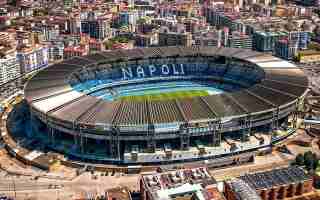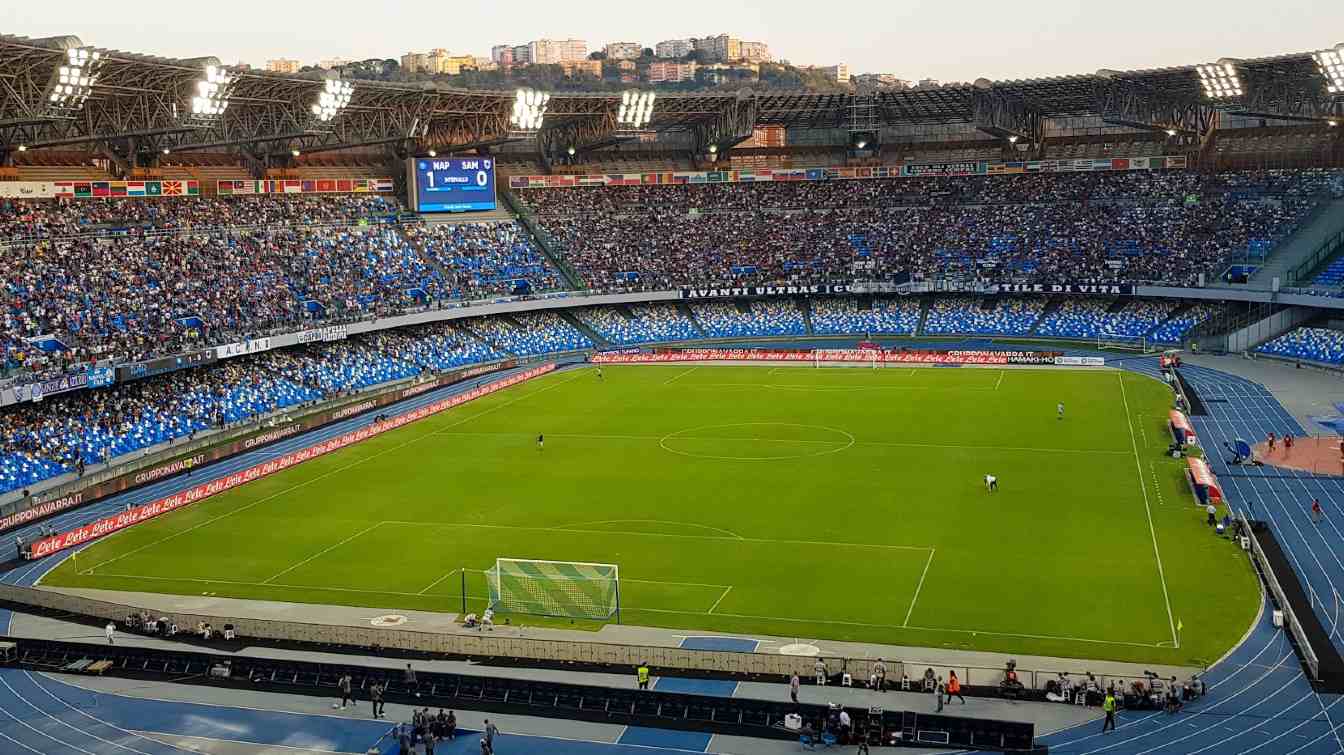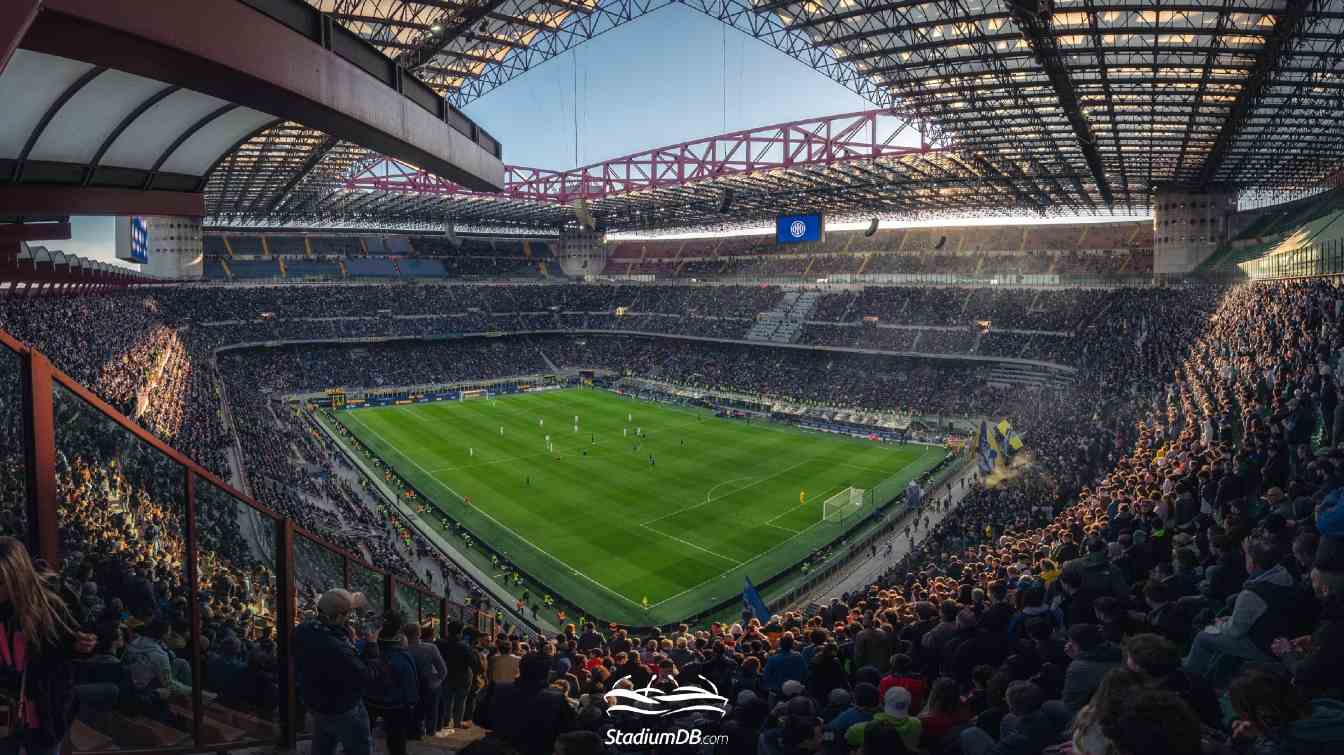Italy: Race to host Euro 2032. Italy unprepared, several stadiums in play
source: StadiumDB.com; author: Paulina Skóra
 Preparations for the 2032 UEFA European Championship — which Italy will co-host with Turkey — are intensifying. In a country where memories of the 1990 World Cup are still alive, a kind of “casting call” is underway to select the five Italian stadiums that will ultimately be part of the tournament. Turin is a certainty, while the venues in Florence and Rome are also ready. The battle for the remaining two spots is fierce.
Preparations for the 2032 UEFA European Championship — which Italy will co-host with Turkey — are intensifying. In a country where memories of the 1990 World Cup are still alive, a kind of “casting call” is underway to select the five Italian stadiums that will ultimately be part of the tournament. Turin is a certainty, while the venues in Florence and Rome are also ready. The battle for the remaining two spots is fierce.
Advertisement
Salerno – Arechi modernisation
The first phase of a major overhaul of Stadio Arechi is beginning in Salerno. Symbolically on 9 September — the 35th anniversary of Salernitana’s first match at the venue — Mayor Vincenzo Napoli sent a letter to FIGC president Gabriele Gravina demanding that the stadium be included in the Euro 2032 list. Talks are underway in the Campania region with advisor Andrea Cardinaletti on the work schedule.
The plan includes demolition of the north stand (currently the away section) and upgrading the facility to UEFA’s strict standards: a minimum of 30,000 seats, expanded VIP and hospitality areas, a new press stand, green spaces around the stadium and appropriate lighting. The aim is for Arechi to become one of the most modern and functional stadiums in Italy.
Naples – Manfredi’s riposte
Naples, meanwhile, is not giving up. Mayor Gaetano Manfredi has written to UEFA, formally submitting the Stadio Diego Armando Maradona as a Euro 2032 venue. This is a response to the initiative of Vincenzo De Luca, politician and long-time mayor of Salerno, who had previously supported the city’s bid.
The city authorities announced they will recover 10,000 seats by restoring the third ring of stands closed for 20 years. Work is to begin in October 2026 and finish by 2031. At the same time SSC Napoli is pushing its own stadium project in Poggioreale, adding a political-business dimension to the whole affair.
 © Gaetano Capaldo | Stadio Diego Armando Maradona (Stadio San Paolo)
© Gaetano Capaldo | Stadio Diego Armando Maradona (Stadio San Paolo)
Verona – new arena or Bentegodi upgrade?
Verona is also in the running. The city wants to be among the five Italian hosts for Euro 2032, and there are two scenarios: build a new multifunctional stadium on the site of Bentegodi (with auditorium, shops and parking) or modernise the current venue dating back to the 1990 World Cup.
The first option — costing about €300 million — would require significant private investment and state support, made possible by the amended public procurement law of late 2024. The second — modernisation — would be Plan B, leaving the city with a renovated stadium featuring a VIP stand, hospitality areas and upgraded media facilities.
Milan – uncertain future of San Siro
San Siro, one of the world’s most famous stadiums and the shared home of AC Milan and Inter, still figures in the Euro 2032 discussions, although its future remains unclear. After years of plans for a new arena and debates about possible demolition, the city commissioned a cost analysis of modernization, which shows that enormous investment would be required to meet UEFA standards.
On the one hand, San Siro is a symbol of Italian football, and excluding it from the list of venues would spark criticism from fans and the public. On the other hand, the lack of a clear alternative in Milan poses a serious problem for the organizers. The decision on whether the stadium will undergo a major redevelopment or be left out could ultimately affect the credibility of Italy’s entire bid.
 © Grzegorz Kaliciak | Stadio Giuseppe Meazza (Stadio San Siro)
© Grzegorz Kaliciak | Stadio Giuseppe Meazza (Stadio San Siro)
The stakes – more than football
UEFA will announce the list of Italian stadiums in October 2026. If five venues meeting the standards cannot be found, the entire Euro 2032 could be played in Turkey, which already has 12 stadiums ready for the tournament. Therefore, the race between Salerno, Naples and Verona is not just about local prestige but also a real battle for major investment, jobs and international promotion.
Advertisement
 StadiumDB
StadiumDB